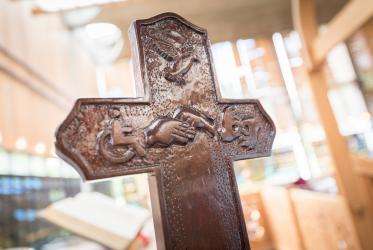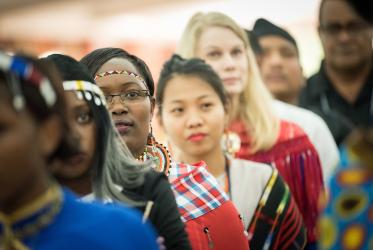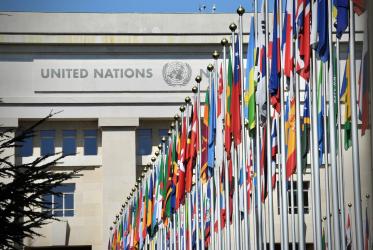When we refer to the disabled as “vulnerable,” we strengthen the delusion that individuals without disabilities are strong and can take care of themselves.
This is one of the points in a document, “The Gift of Being,” discussed by the World Council of Churches (WCC) Central Committee during a meeting in Norway. The document states that most of us will experience reduced mobility in one form or another at some point in life.
The WCC's Ecumenical Disability Advocates Network (EDAN) has worked with issues surrounding integration of the disabled in WCC’s 348 member churches since 1998. At the Central Committee’s meeting in Trondheim 22-28 June, the basis for this work was re-examined.
Dr Samuel Kabue, executive secretary of EDAN, spoke about the background for the new policy document, “The Gift of Being.”
“The basis of being created in God’s image led us to the title ‘The Gift of Being.’ Life in all forms has the same value; even if our bodies are different, we are all equally created in God’s image. Because we are created, we are also the object of God’s love, and God’s love applies equally to all. Even people with bodies that may seem weak are precious,” says Kabue.
He is pleased that it is no longer somebody from the outside who is pressuring the church to work with inclusion of individuals with disability.
“Now the churches themselves see this as their task. From a church perspective, we do not need to argue for inclusion. What we still need is to argue against instances of exclusion. EDAN wants to help the ecumenical family see the unholy consequences of exclusion in our work and in our institutions.”
In “The Gift of Being,” WCC approaches the issue of disability from a human rights perspective. Ethical challenges presented by the rapid developments in artificial insemination were discussed in particular.
The text notes that genetic screening and artificial insemination seek to provide prospective parents with an “informed choice” regarding a child’s genetic traits. In this regard, the WCC document questions the prevailing understanding of the expression “quality of life.”
For example, the document states: “It is worrisome when quality of life arguments support the notion that certain restrictive states result in human lives that are not worth living.”
It further criticizes ethicists who create distinctions between “being alive” and “having a life:”
“Within such a distinction lies an idea that just ‘being alive’ does not have any value in and of itself. This gives human life a value based on what people are able to do with life.”
“The developments within artificial insemination send a clear message that ‘disabled life’ is not welcome and should be prevented from being born,” the document states. It is pointed out that one can easily overlook how this is perceived by people with disabilities and by their families.








